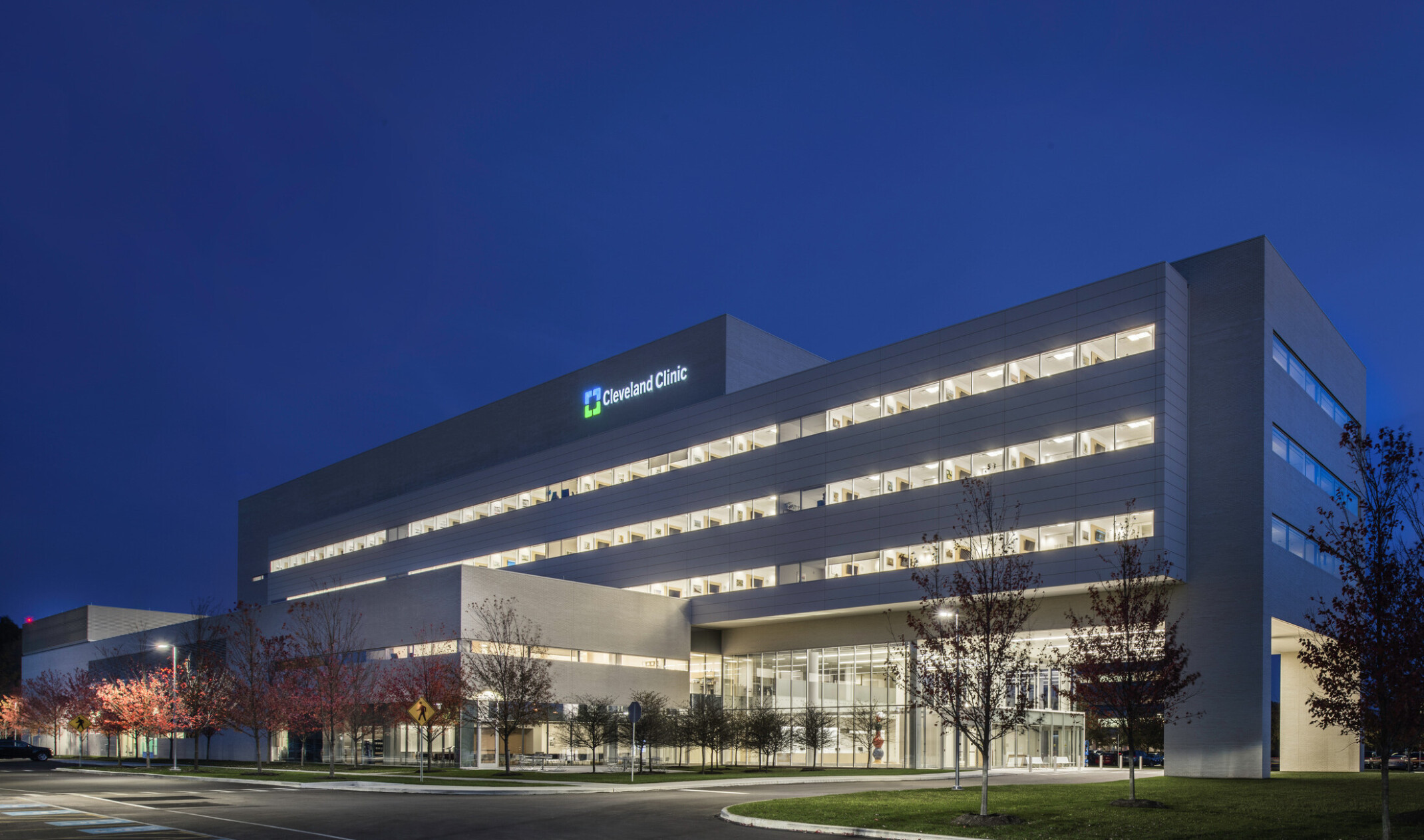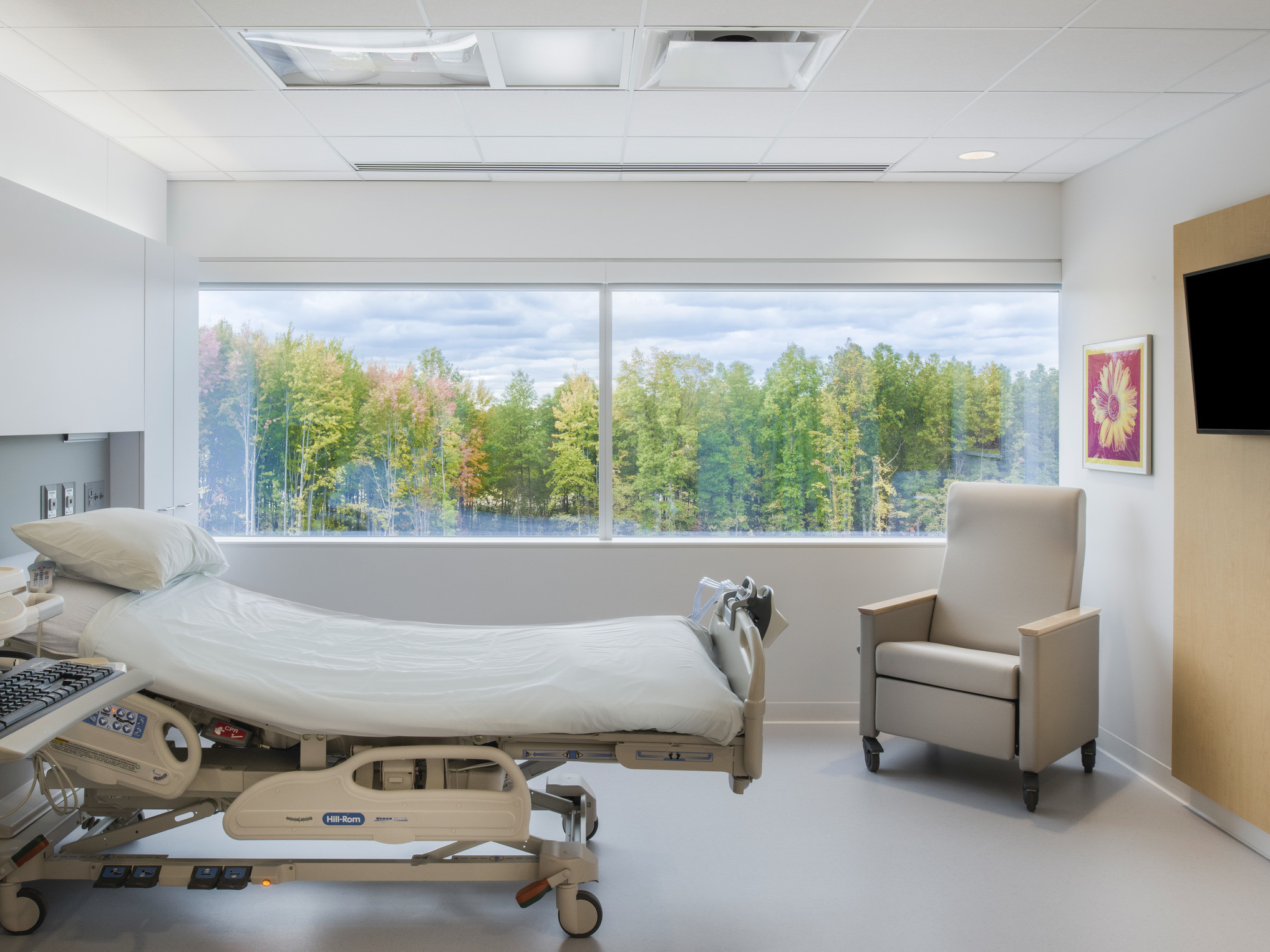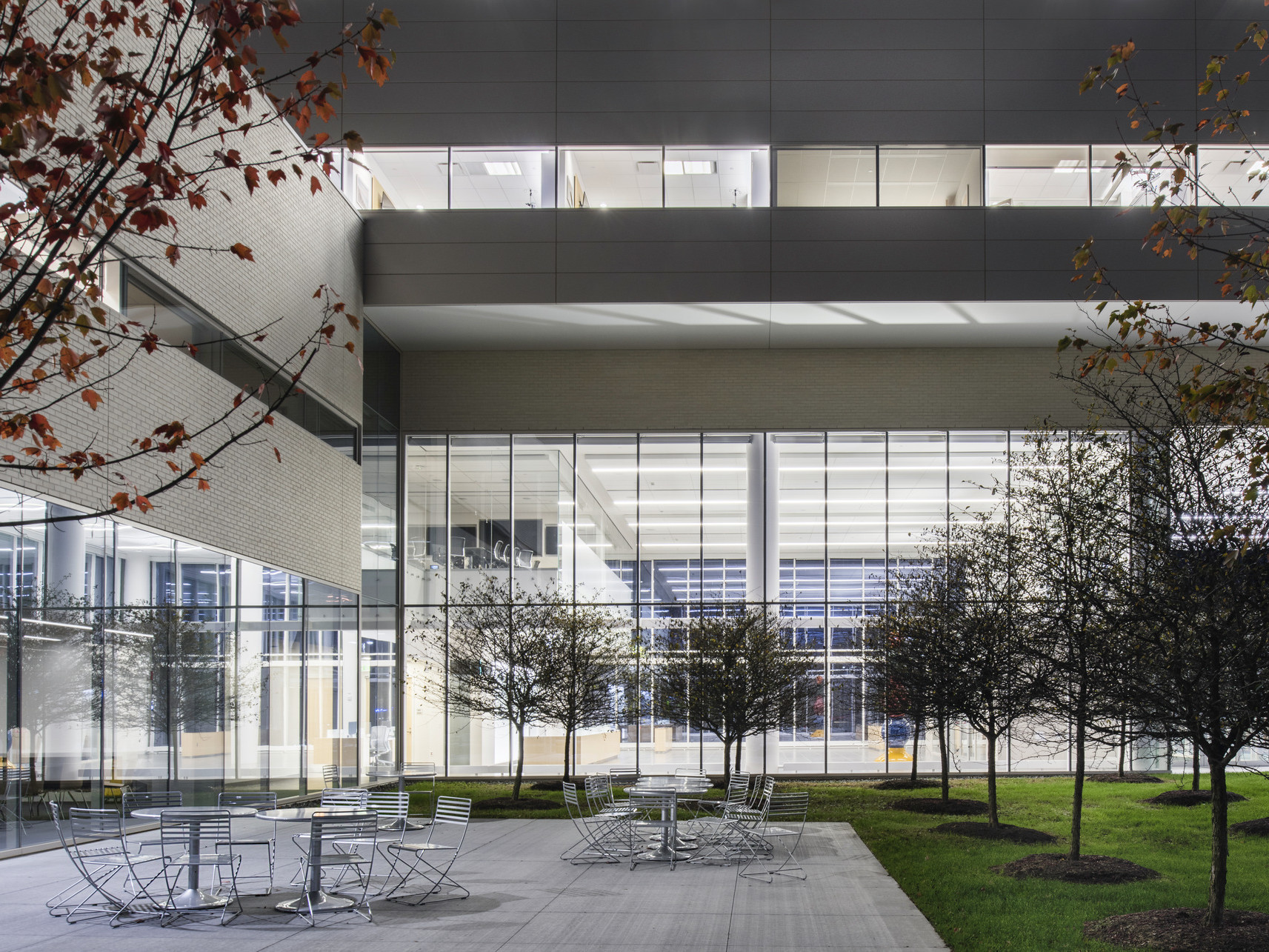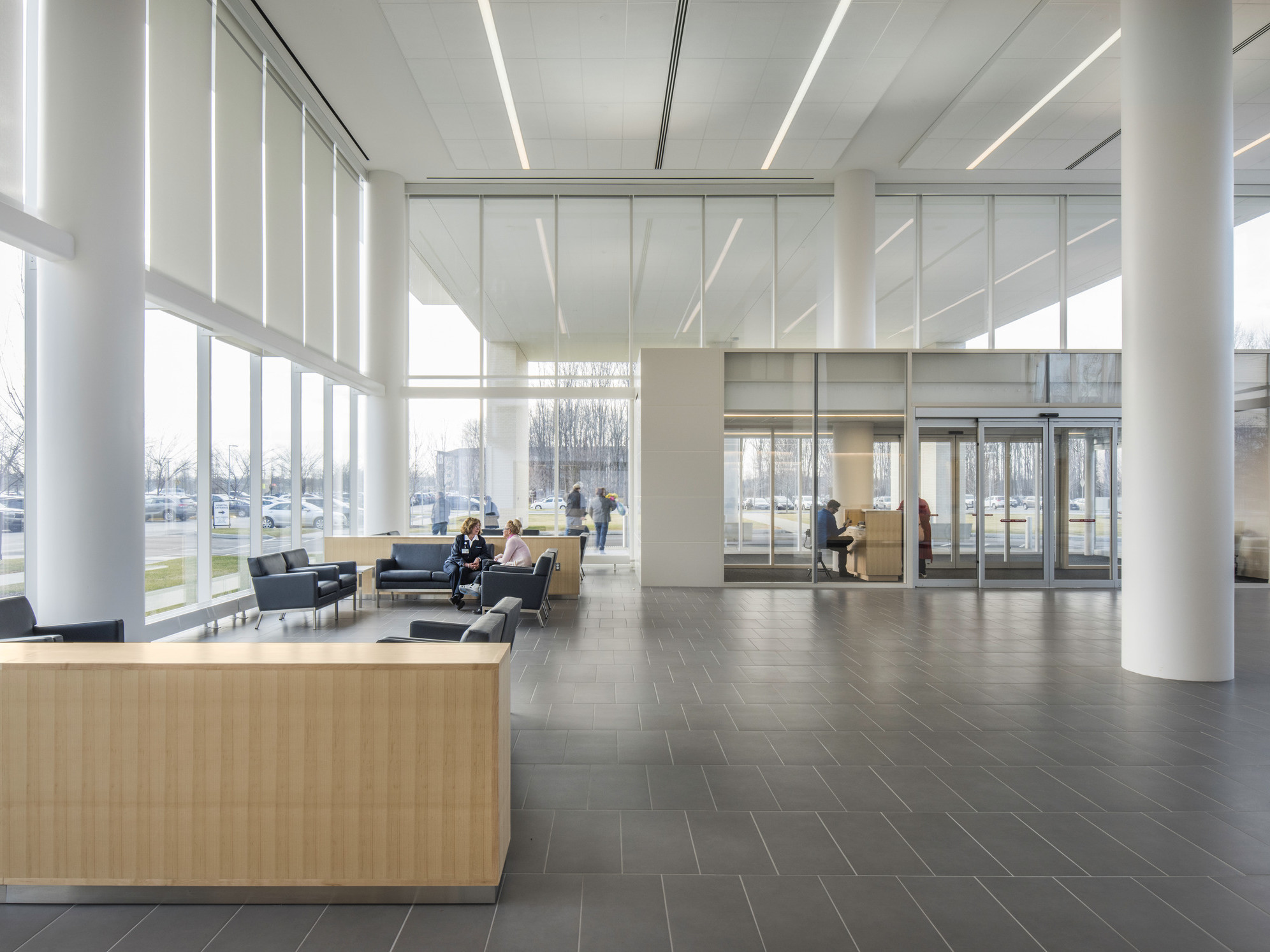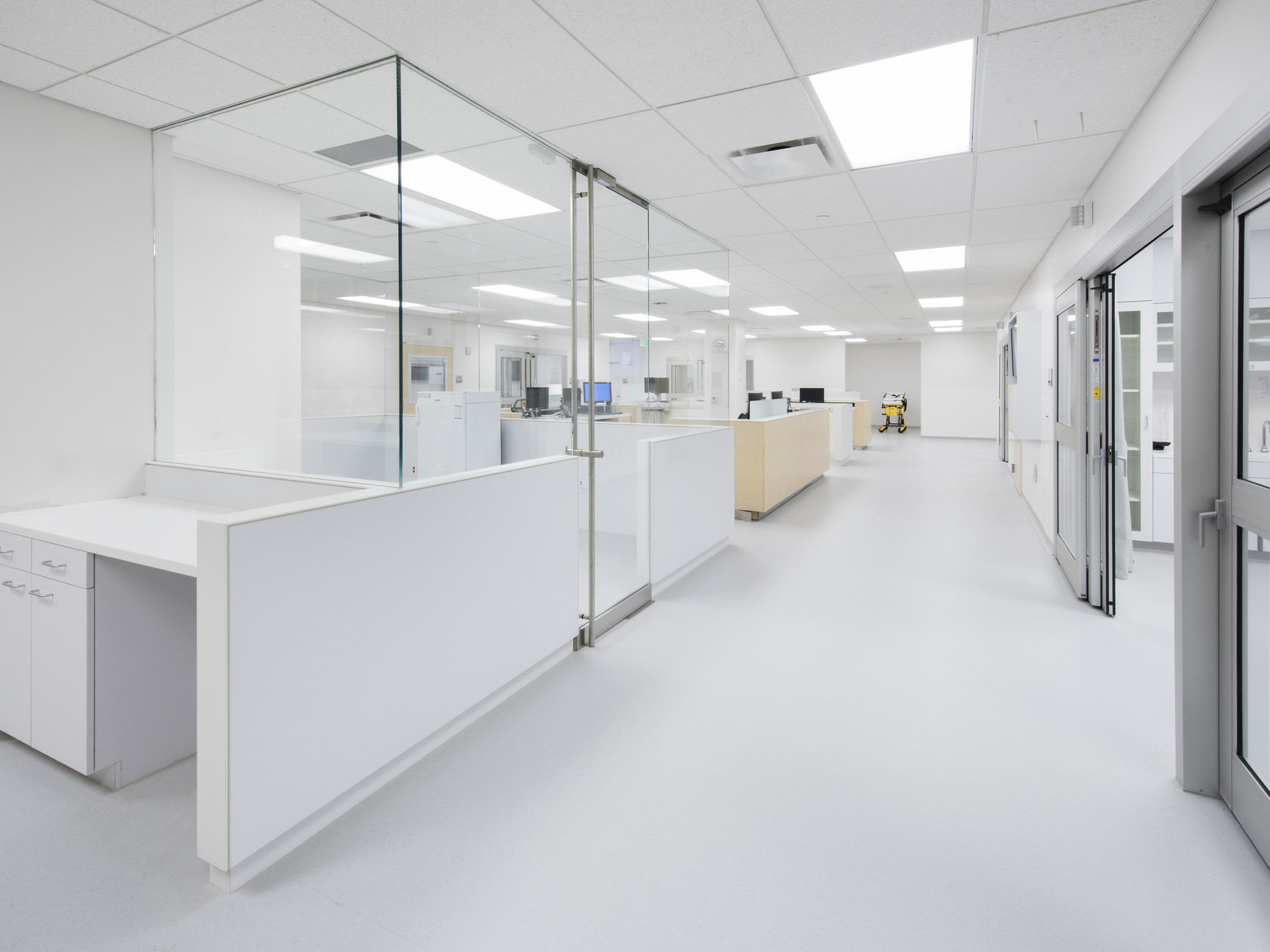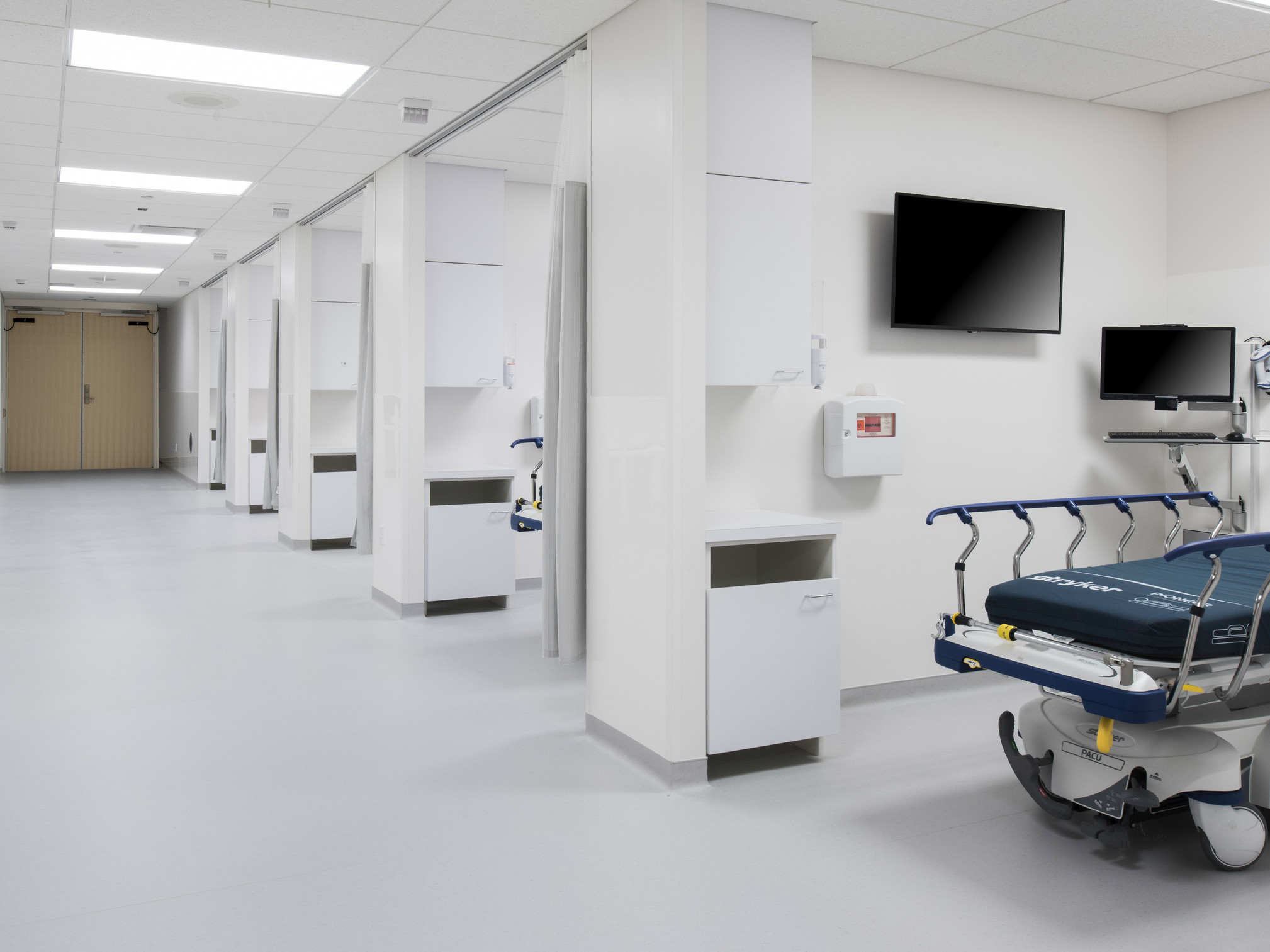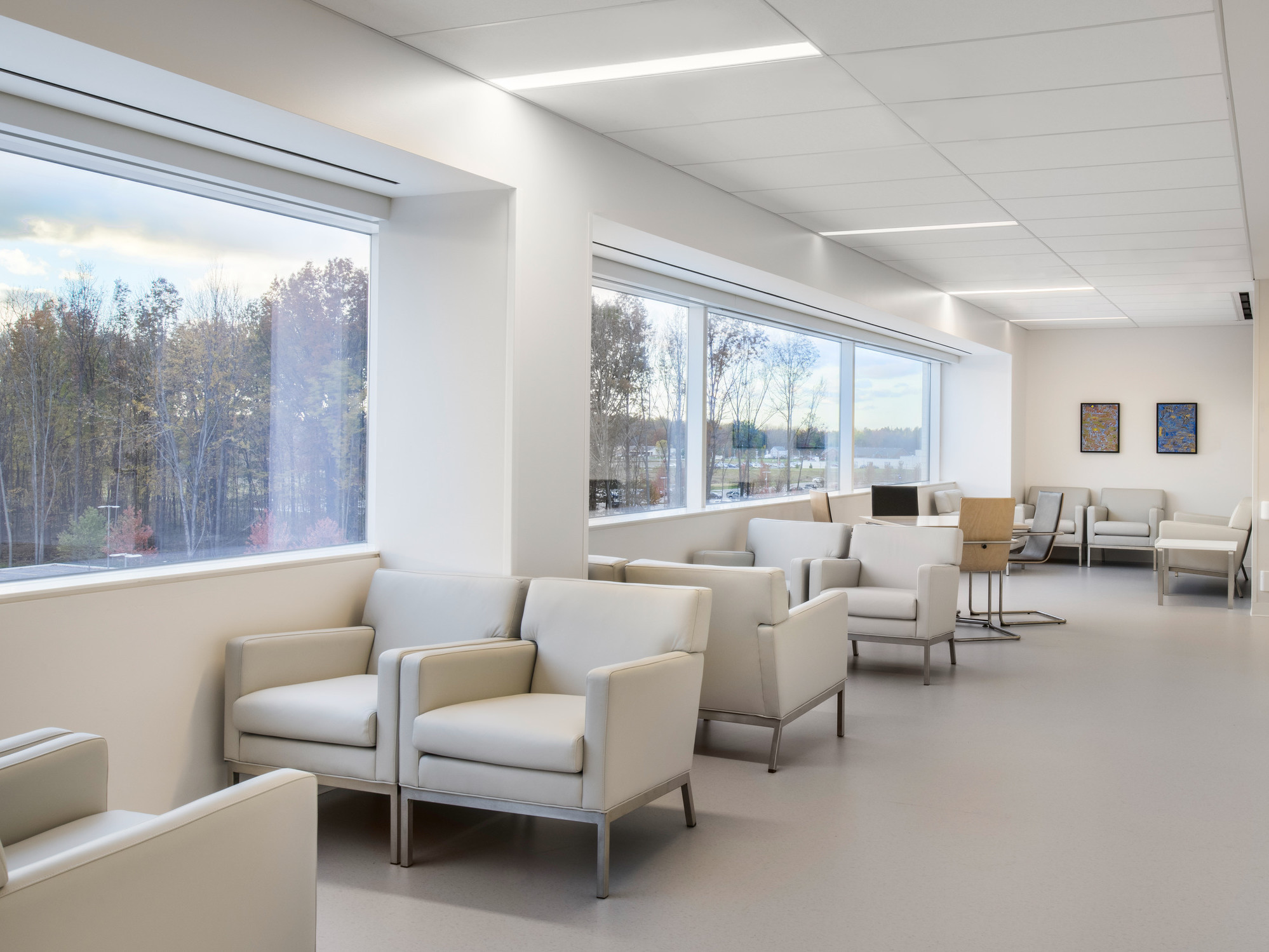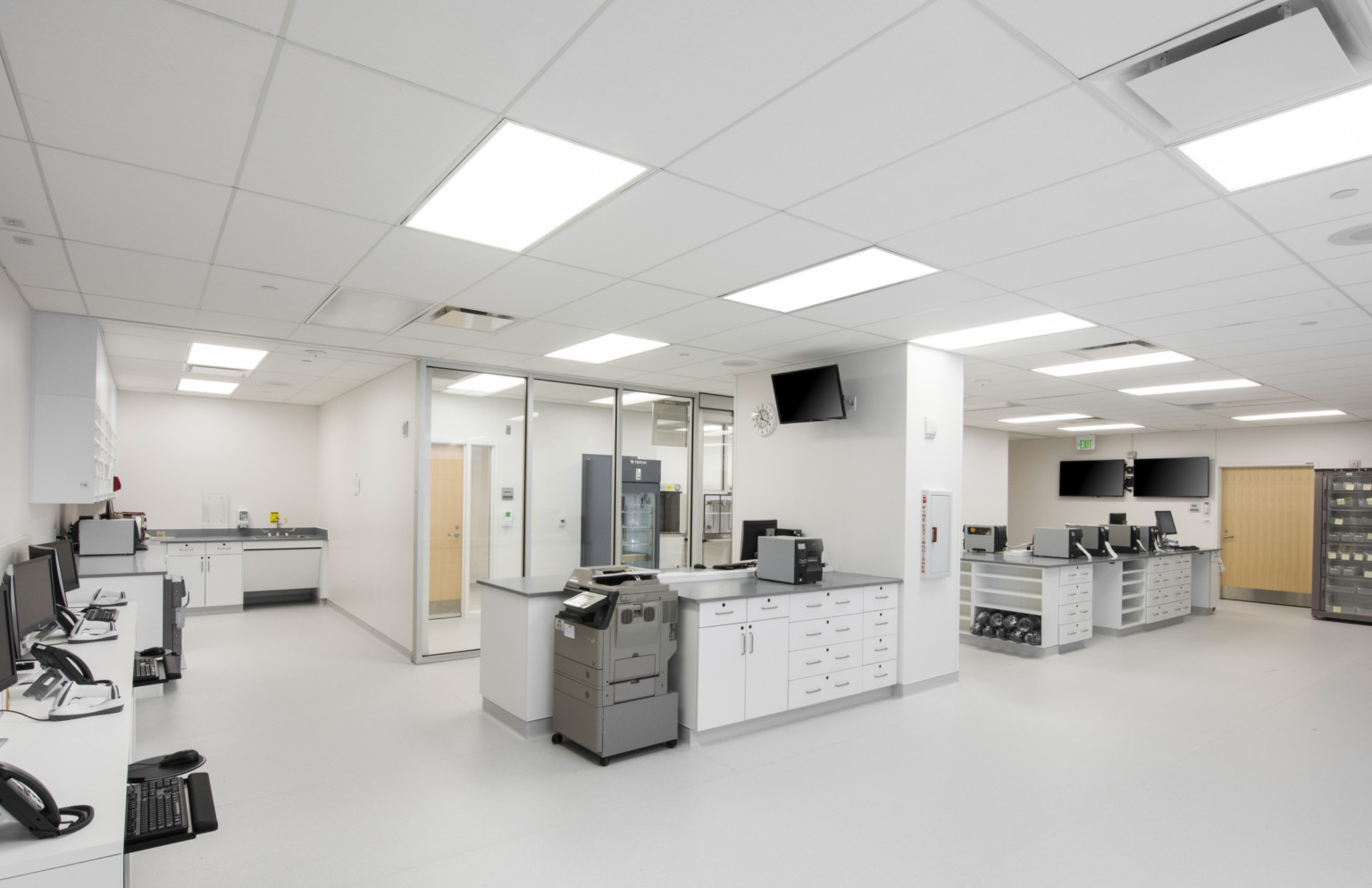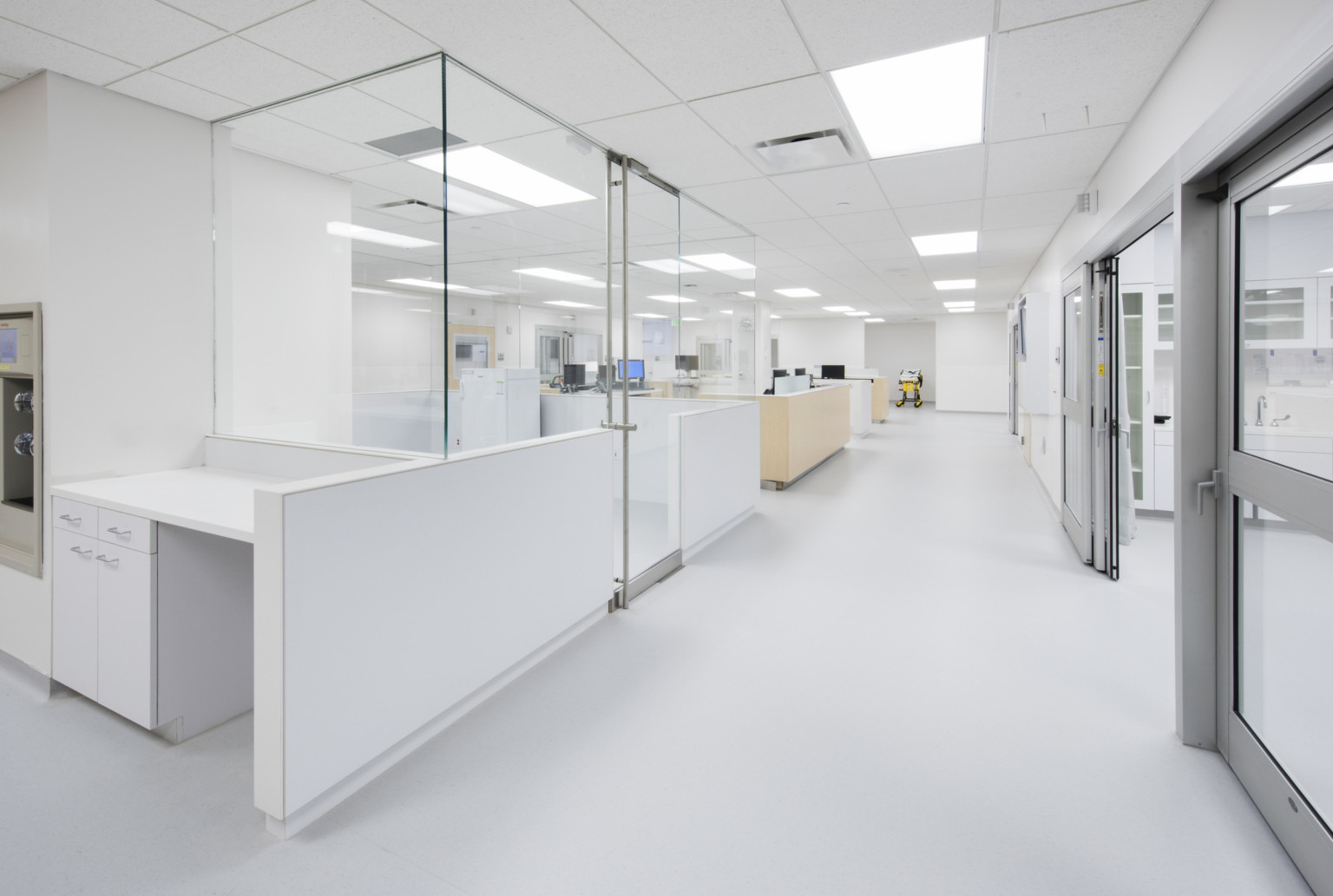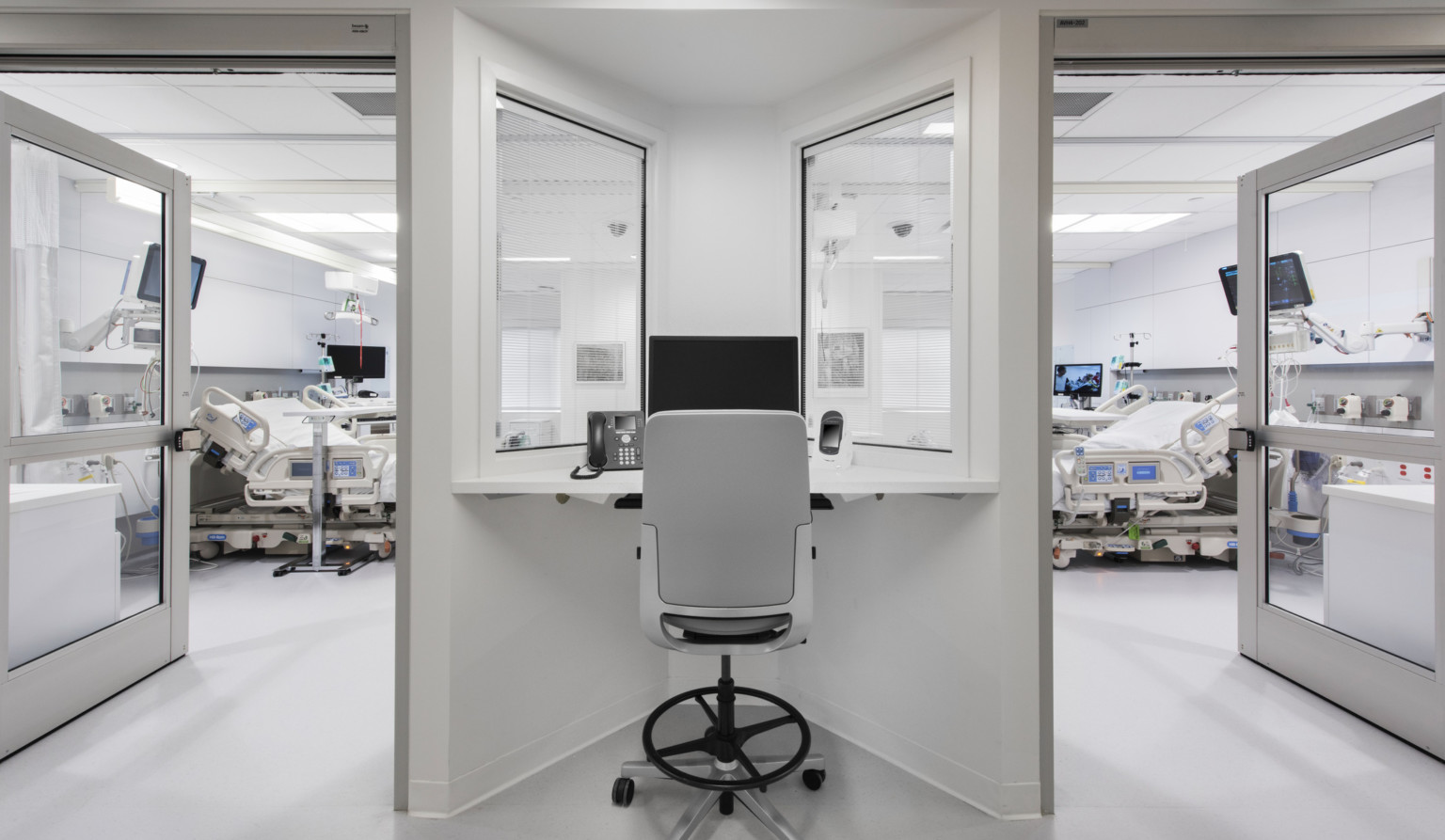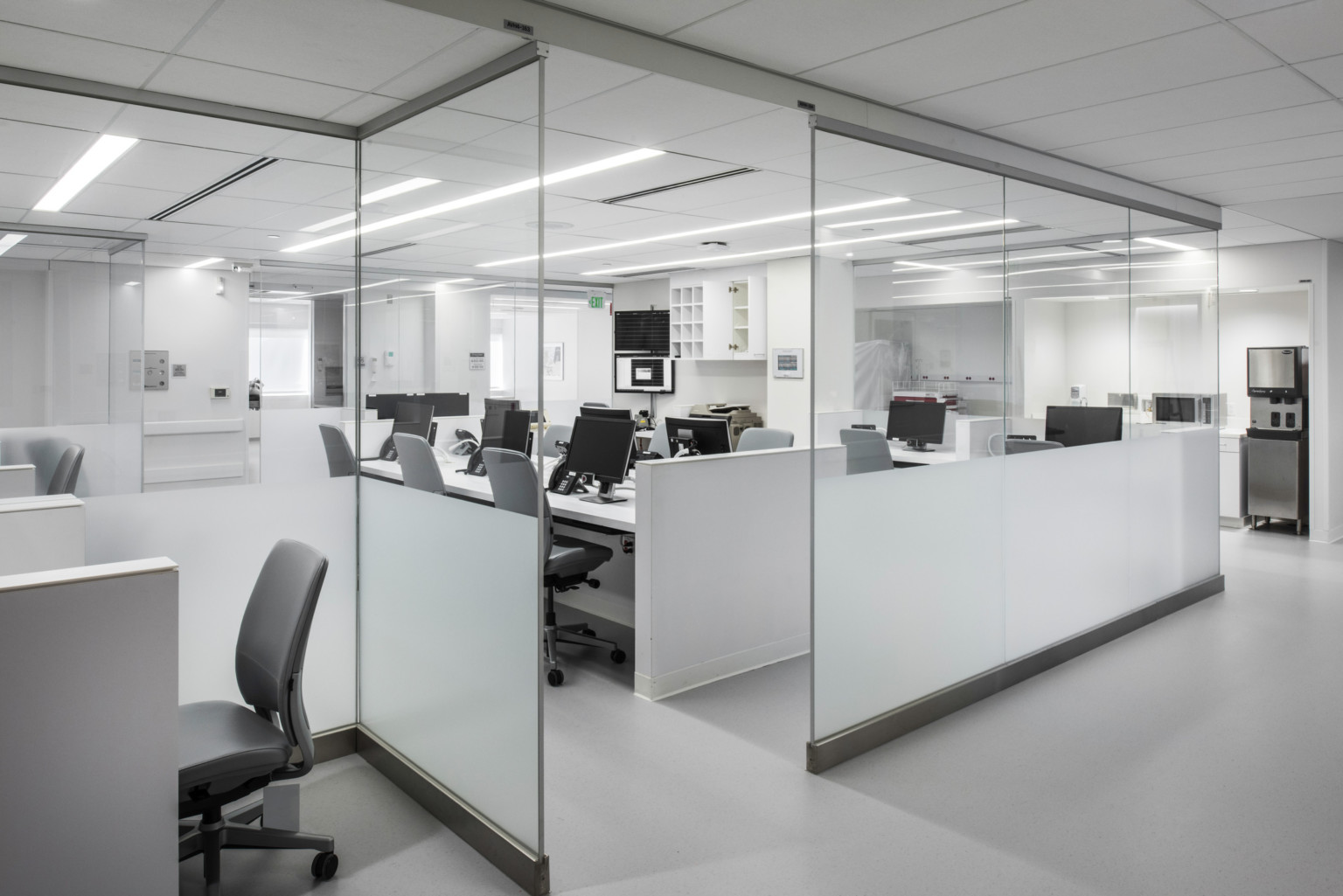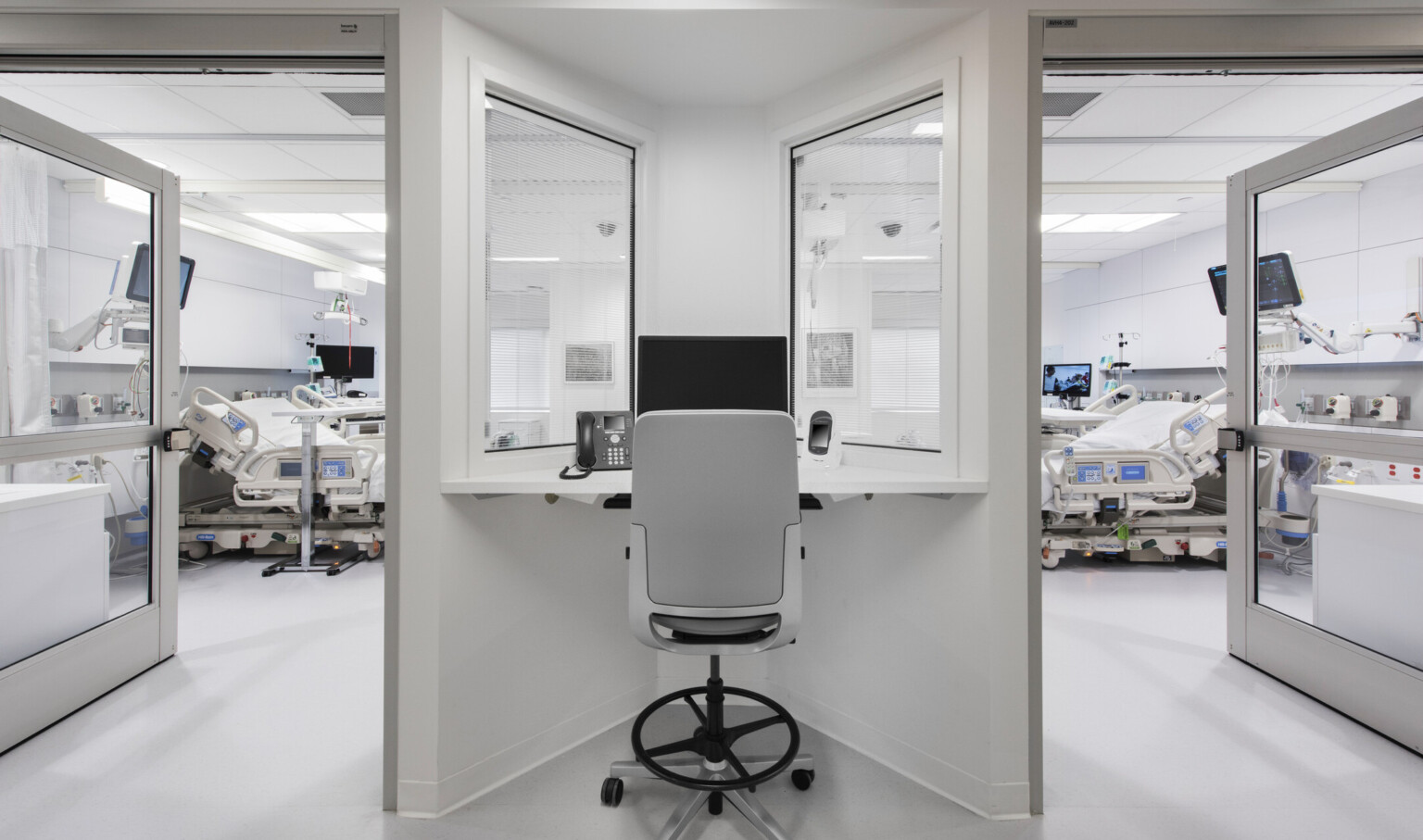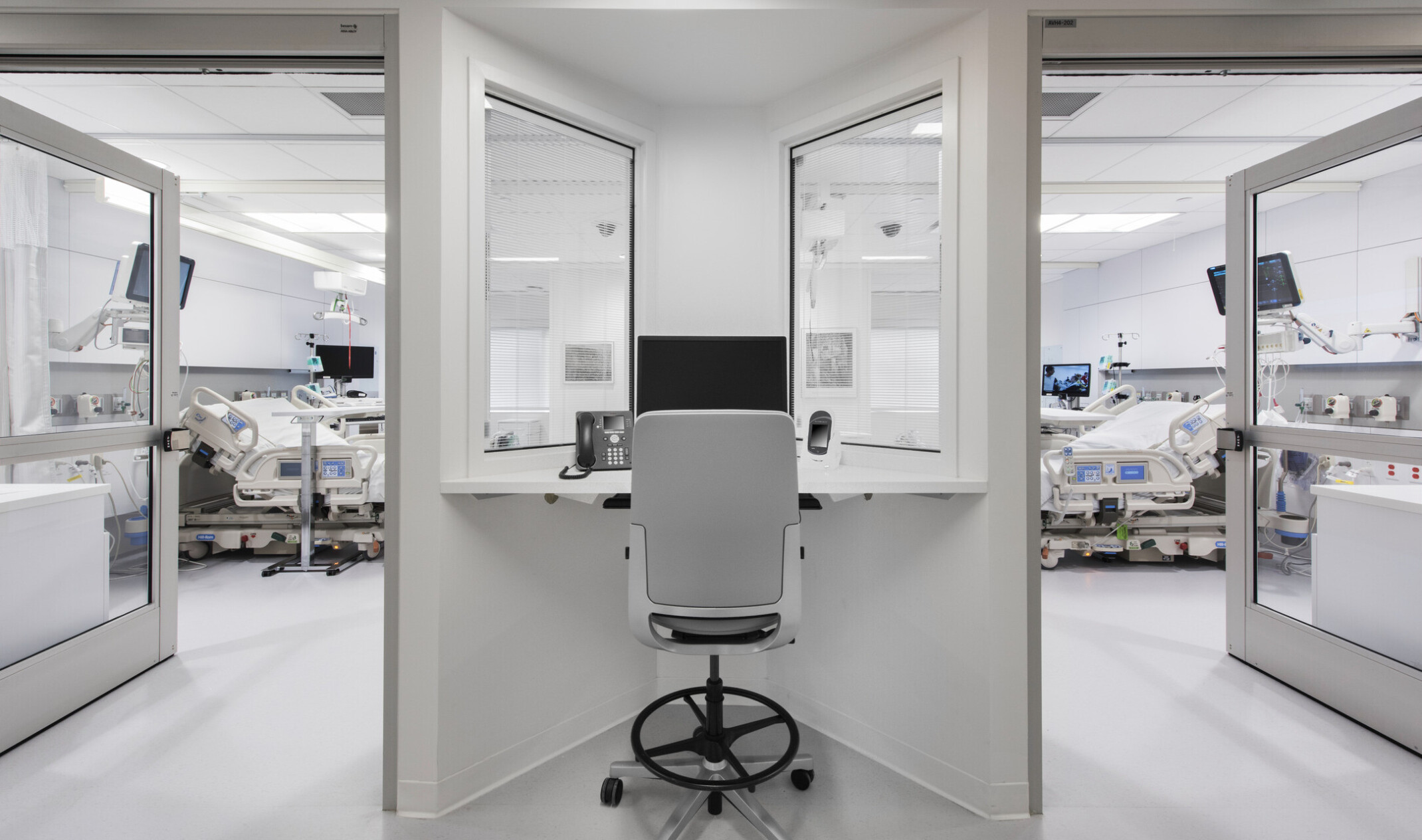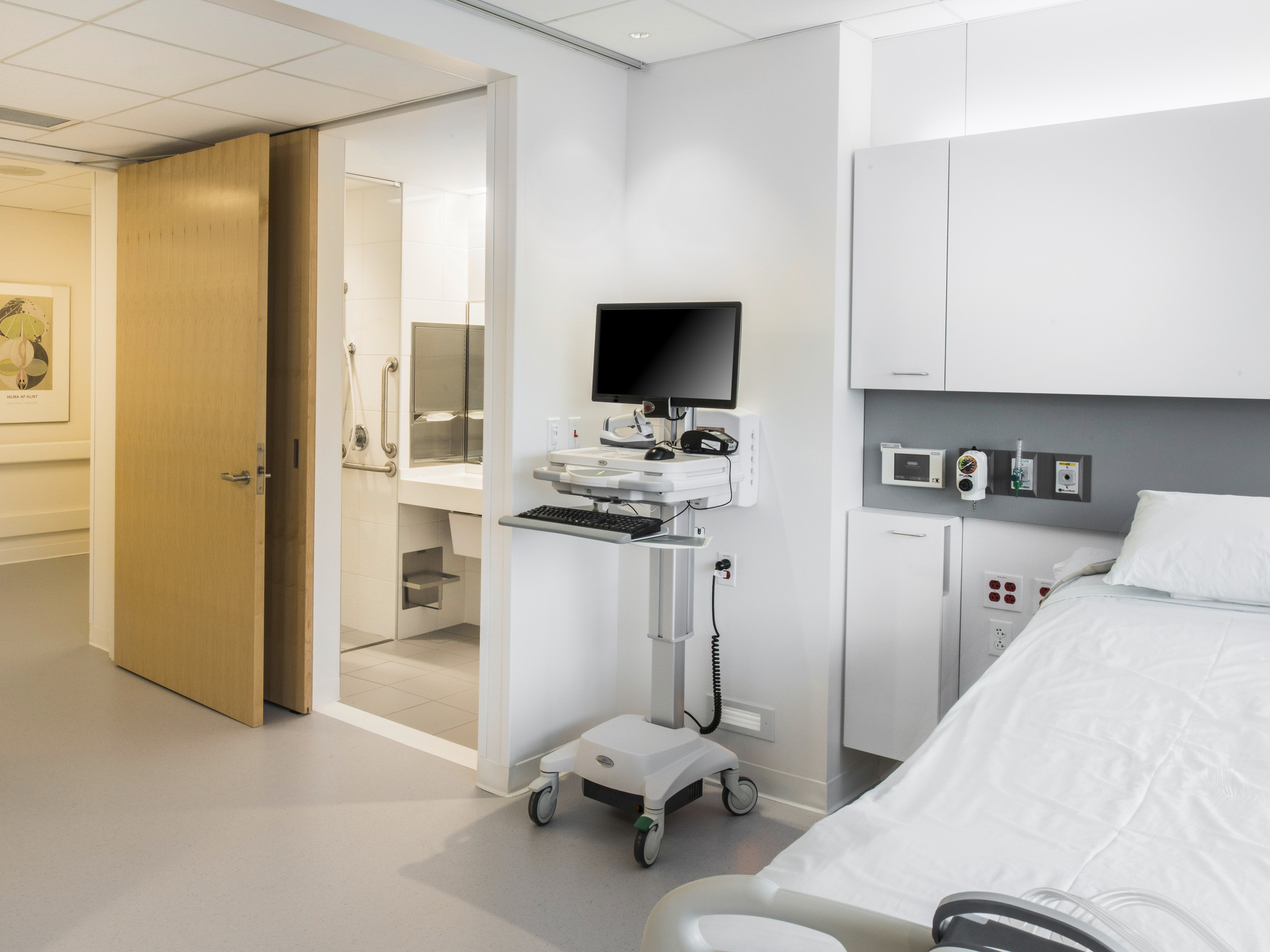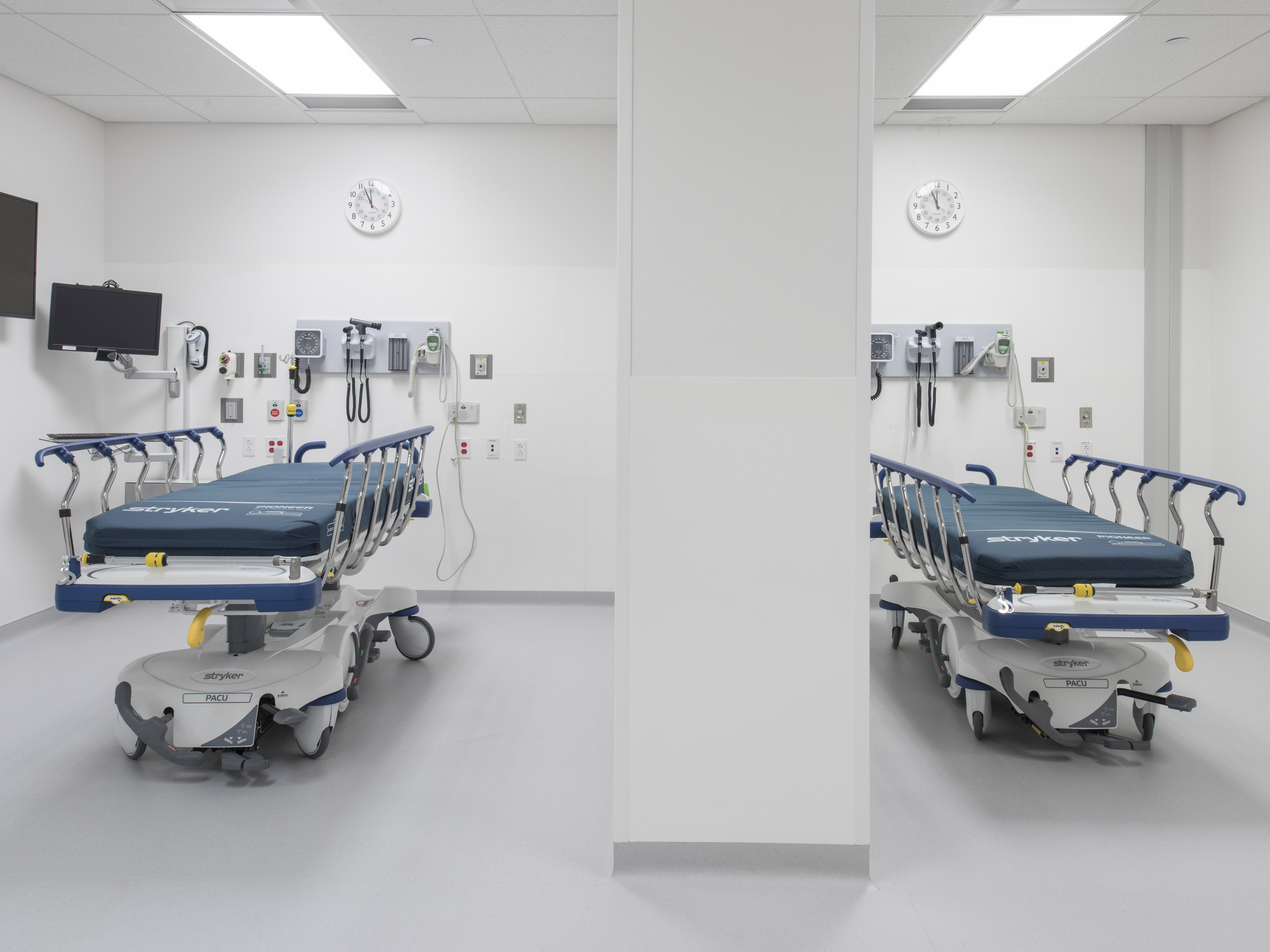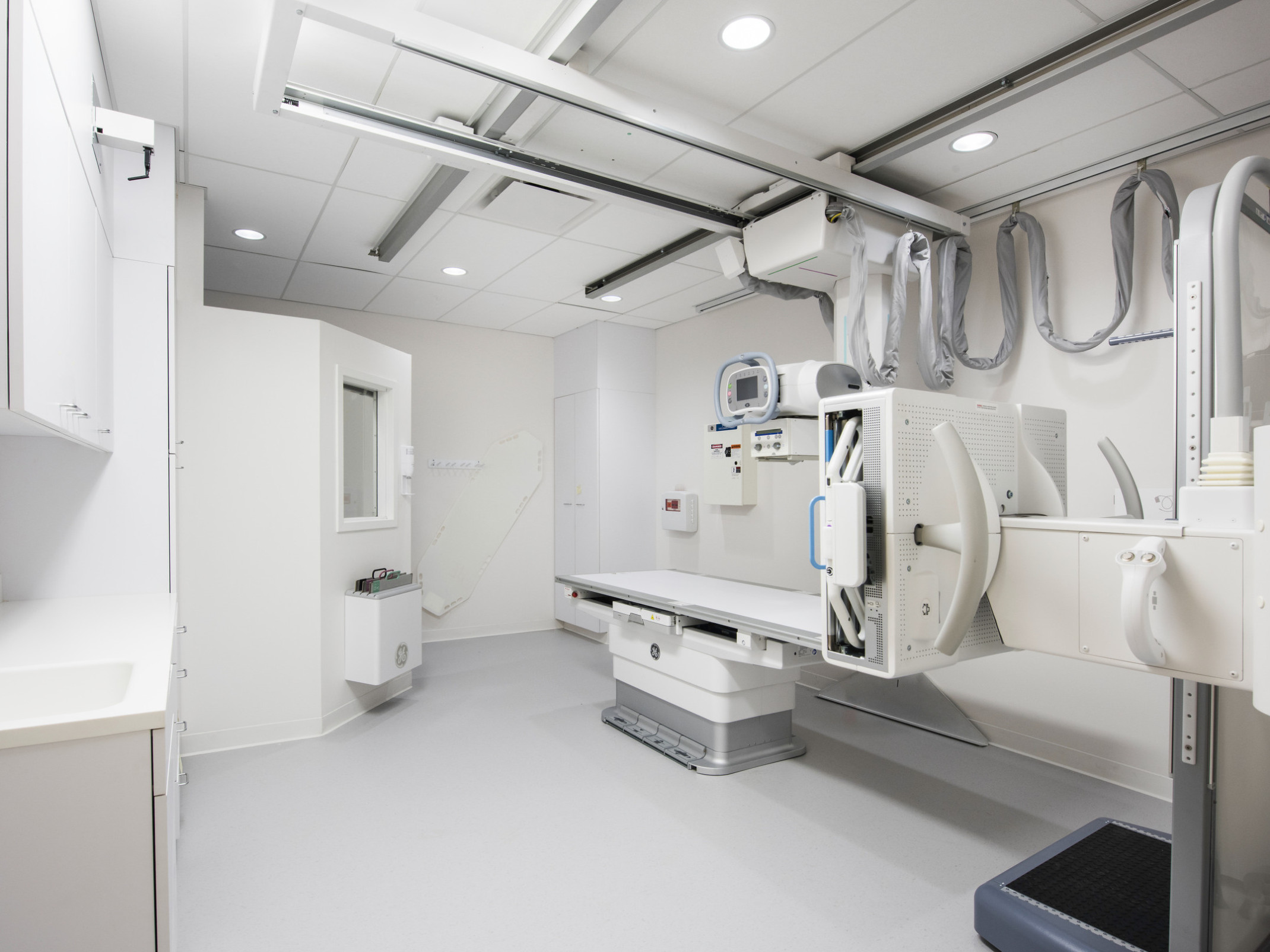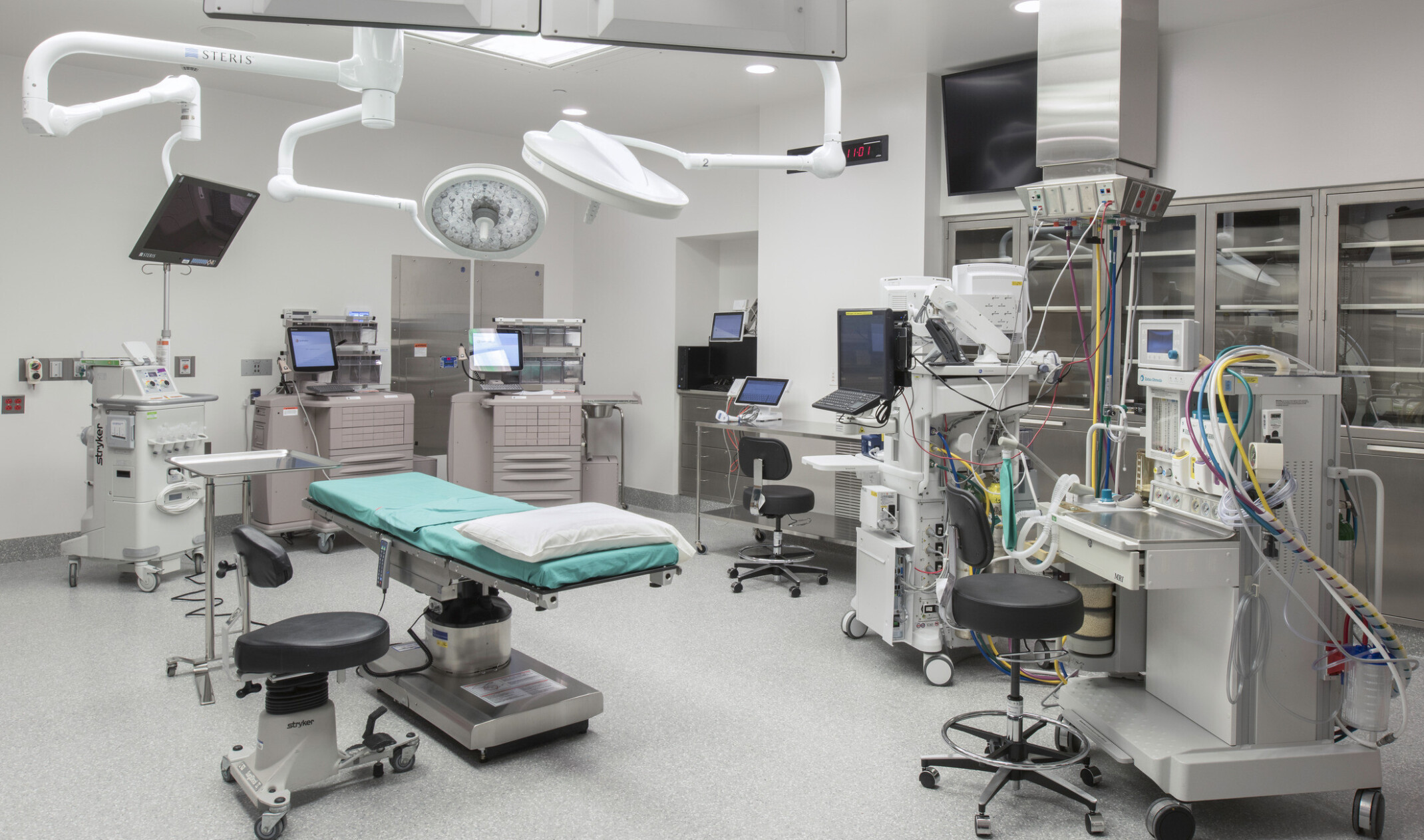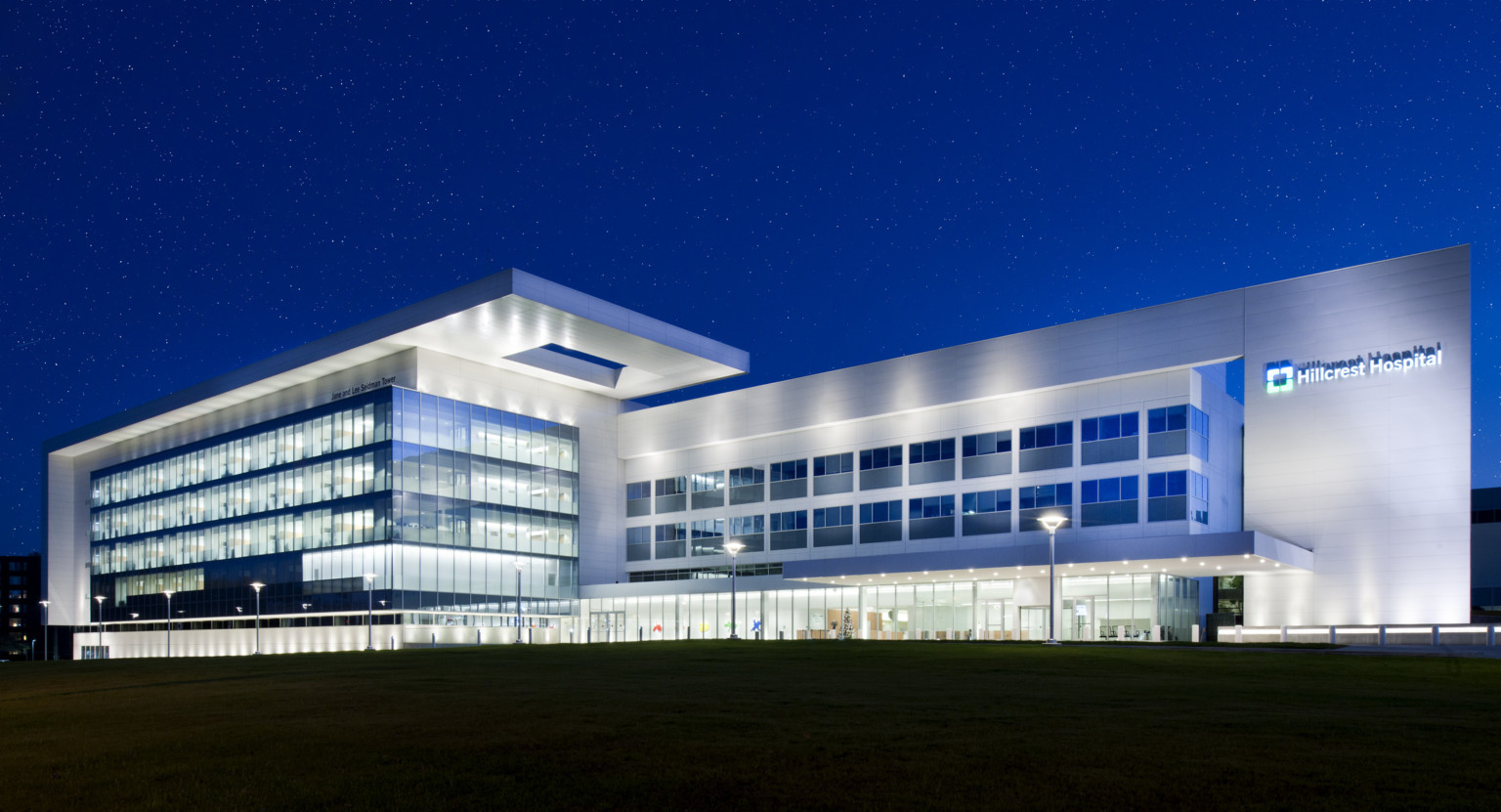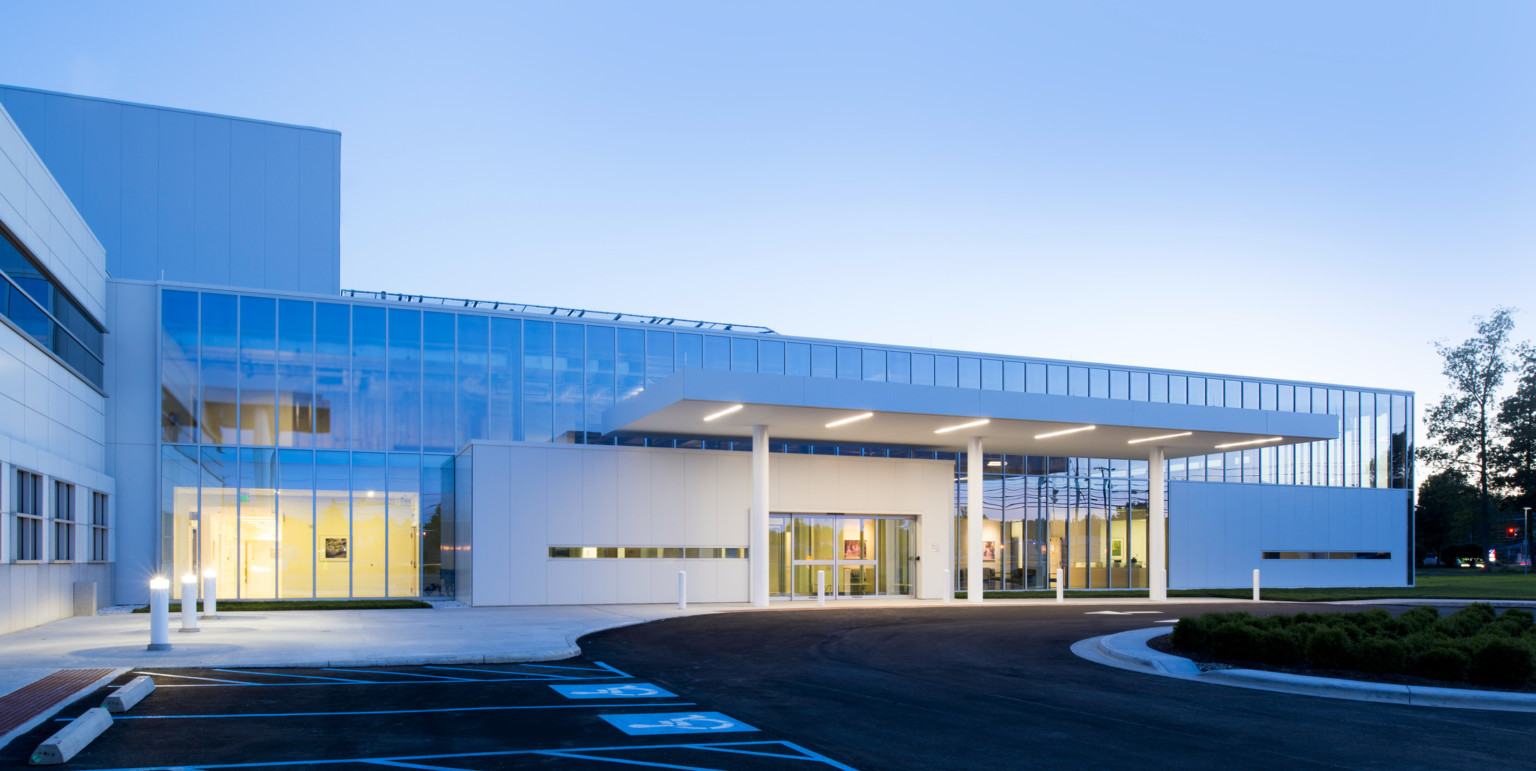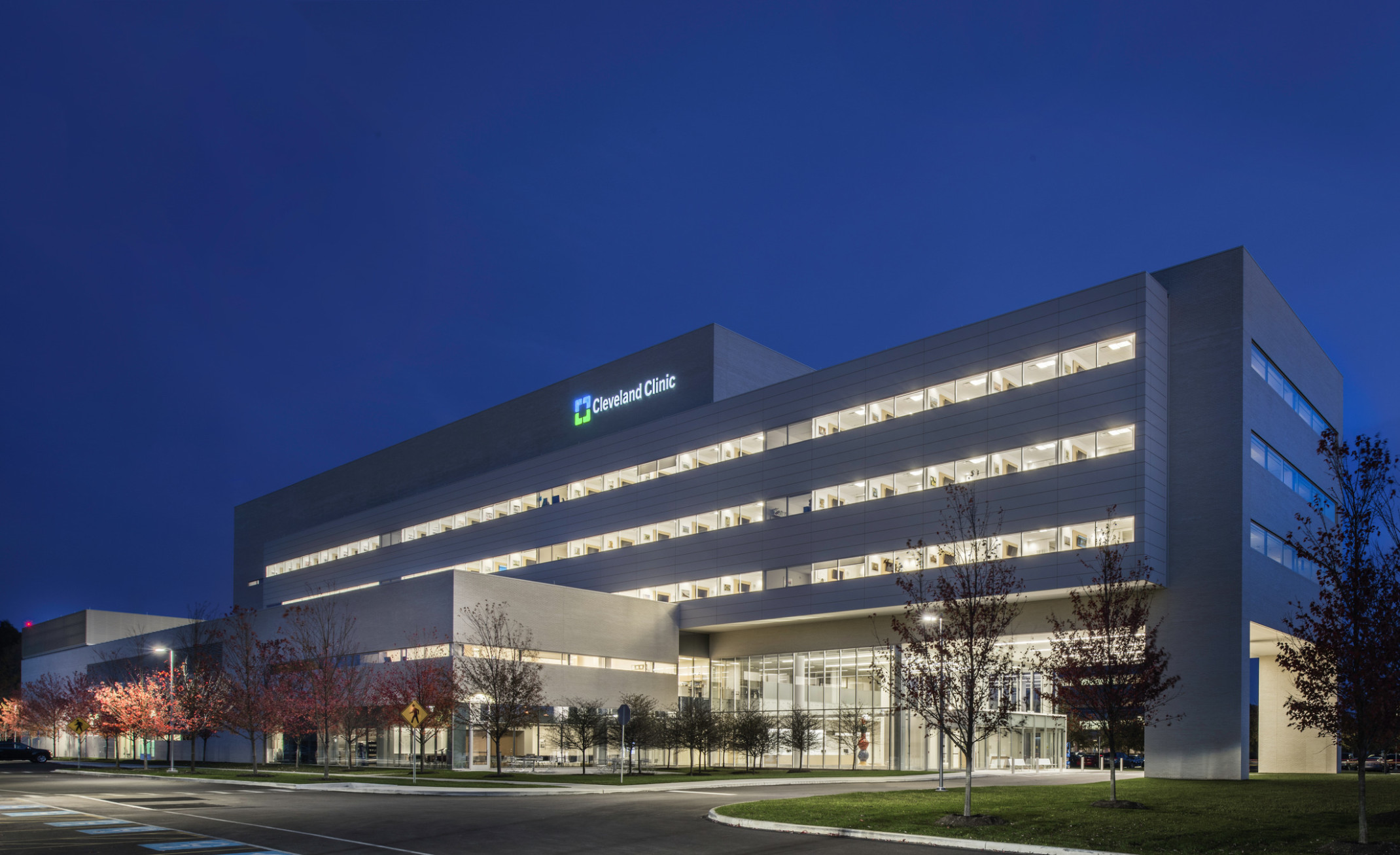
Cleveland Clinic Avon Inpatient Bed Tower
The Hospital of the Future
Project Location
Avon, OH
Client
Cleveland Clinic Foundation
Area
225,000 SF
Project Type
Inpatient
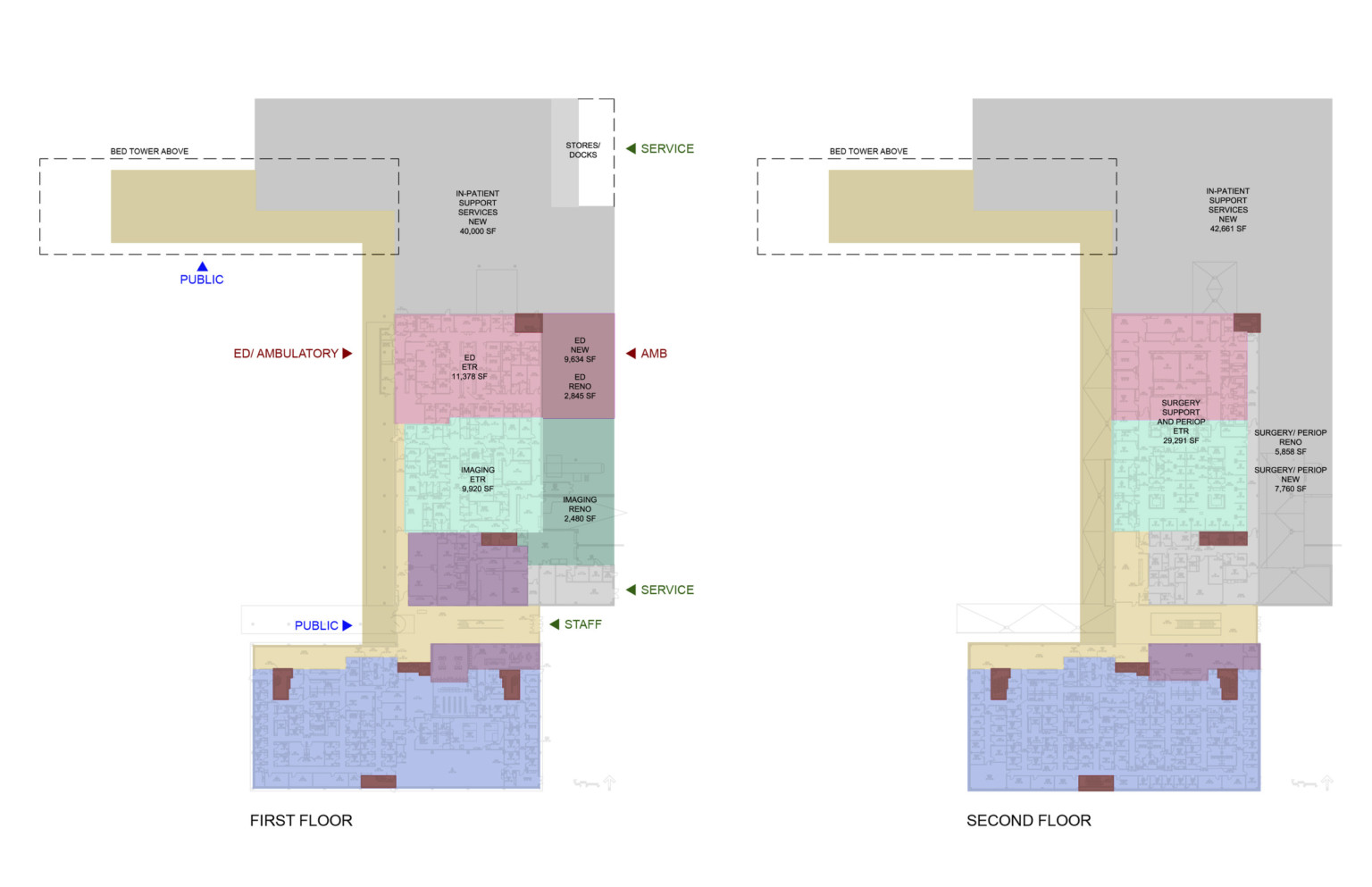
Tour the Digital Model
The project included the design of inpatient beds, medical/surgical patient rooms, intensive care beds, new operating rooms, pharmacy, processing lab, and an expansion of the emergency and imaging departments.
Explore

Design Process
Simultaneous to design, medical staff developed a workflow process to coordinate with interdisciplinary teaming, e-hospital, and the technological advancements. The collaborative design, which is informed by process mapping of patient, material, and support services, results in a 15% reduction of space compared to an average acute care hospital in the United States. The balance of the building included patient support services, general support services, diagnostic, and interventional programs.
